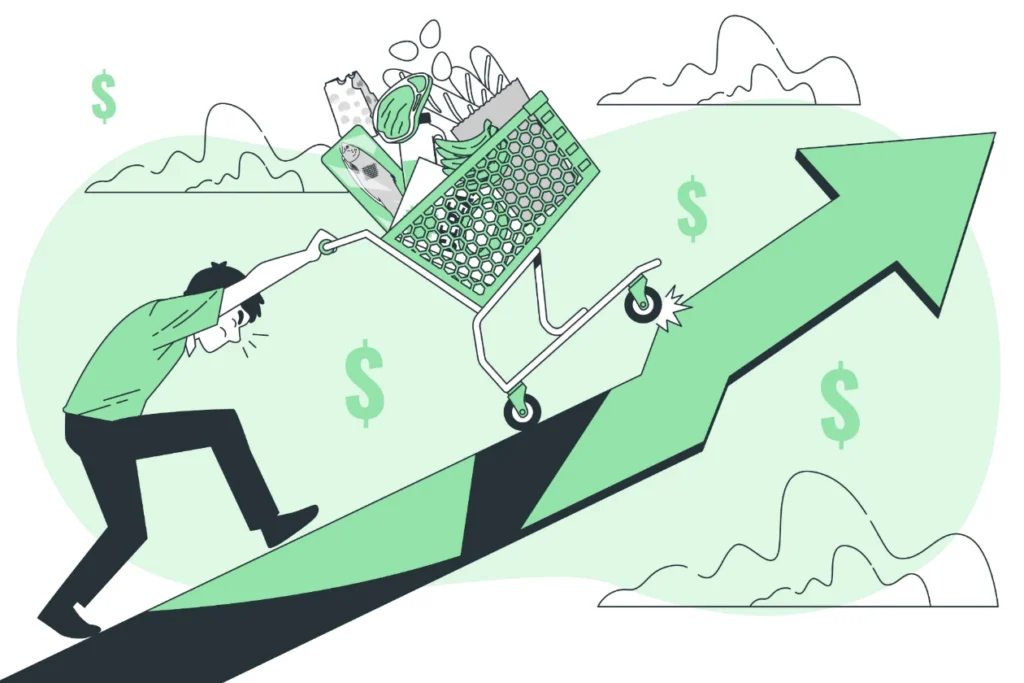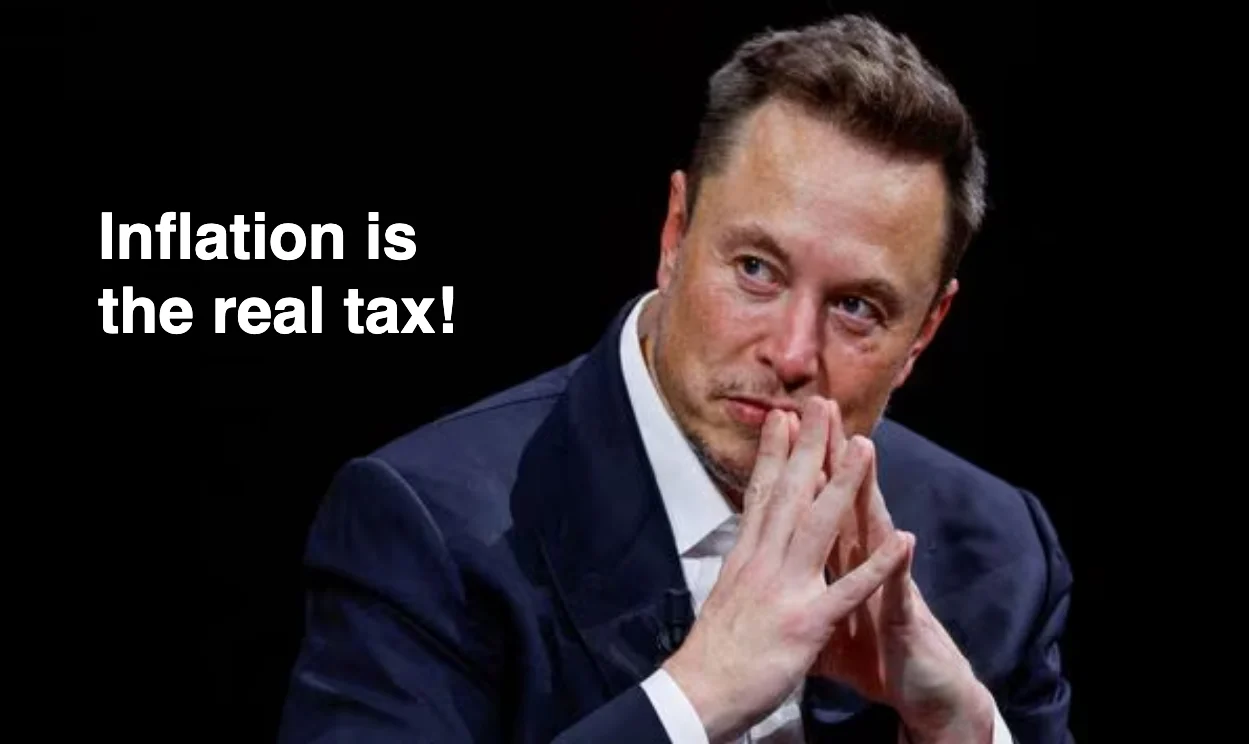Inflation. It’s a word we hear constantly, often accompanied by rising prices at the grocery store, the fuel pump, and every corner of our lives. While governments levy various taxes on our income, property, and consumption, there’s another, more insidious form of taxation that often goes unnoticed: inflation. As agreed by Elon Musk in his tweet to “Inflation is the real tax!”. But what does he mean by that, and how exactly does this “hidden tax” impact you?
Table of Contents
The Silent Erosion: How Inflation Acts Like a Tax
Imagine your hard-earned money as a bucket of water. Every time inflation ticks up, a small hole appears in that bucket, and a little bit of water — your purchasing power — leaks out. While your nominal income might stay the same, or even see a slight increase, the actual value of that money diminishes. You can buy less with the same amount of rupees today than you could yesterday.
This is precisely why inflation is often called a “hidden tax.” Unlike income tax or GST, which are clearly visible deductions, inflation silently siphons off your wealth without a direct bill or a line item on your payslip. It’s a reduction in the real value of your money, effectively transferring purchasing power from your pocket to the broader economy, often benefiting those who create and manage the money supply.
Elon Musk’s Take: Why the Tech Titan Calls it the “Real Tax”
Elon Musk, the visionary behind Tesla and SpaceX, has been vocal about his concerns regarding inflation. His widely circulated tweet, supporting “Inflation is the real tax,” resonated with millions because it succinctly articulated a fundamental economic truth.
Musk’s perspective highlights the fact that excessive money printing and government spending, without a corresponding increase in productive output, lead to a devaluing of the currency. This devaluation acts as a direct financial burden on citizens, particularly those with savings, fixed incomes, or limited means to invest in inflation-hedging assets. He has often linked it to the broader issue of national debt, arguing that if governments continue to spend more than they earn, they resort to printing money, which is then paid for by the public through inflation.

The Tangible Impact: What Inflation Means for You
The “real tax” of inflation manifests in several critical ways:
- Erosion of Purchasing Power: This is the most direct and noticeable effect. Your daily expenses, from food and rent to transportation and healthcare, become more expensive. Your budget stretches less, and your standard of living can decline even if your income remains stable.
- Diminished Savings: If your savings account interest rate is lower than the inflation rate, your money is effectively losing value. For example, if you earn 4% interest on your savings but inflation is at 6%, your real return is actually a negative 2%. Your nest egg for retirement, a down payment, or your children’s education is silently shrinking.
- Impact on Fixed Incomes: Retirees, pensioners, and anyone on a fixed income are particularly vulnerable. Their income doesn’t adjust automatically to rising prices, meaning their purchasing power declines significantly over time.
- Investment Headwinds: While some assets like real estate or commodities can act as inflation hedges, many traditional investments, especially fixed-income securities like bonds, can suffer. The real return on these investments can be negative if inflation outpaces the interest earned.
- Increased Cost of Living: Beyond basic necessities, the cost of everything, from education and healthcare to leisure activities, tends to rise with inflation, making it harder to maintain your desired lifestyle.
Protecting Yourself from the “Real Tax”
While inflation is largely a macroeconomic phenomenon, there are steps individuals can take to mitigate its effects:
- Invest Wisely: Consider diversifying your portfolio with assets that historically perform well during inflationary periods, such as equities (stocks of strong companies), real estate, and certain commodities.
- Focus on Real Returns: When evaluating investments, always consider the “real return” (nominal return minus inflation) to understand the true growth of your wealth.
- Budget and Prioritize: In times of high inflation, a meticulous budget becomes even more crucial. Prioritize essential spending and look for areas to cut back on non-essential expenses.
- Seek Income Growth: Strive to increase your income through career advancement, skill development, or side hustles to keep pace with rising costs.
- Educate Yourself: Understanding the mechanisms of inflation empowers you to make informed financial decisions and advocate for sound economic policies.
Elon Musk’s simple yet powerful statement serves as a reminder that inflation is not just an economic indicator; it’s a direct and often overlooked tax on everyone’s financial well-being. By understanding its impact and taking proactive measures, you can better navigate its challenges and protect your financial future.
Keep following Duniya Daily for more such interesting updates and insights!










